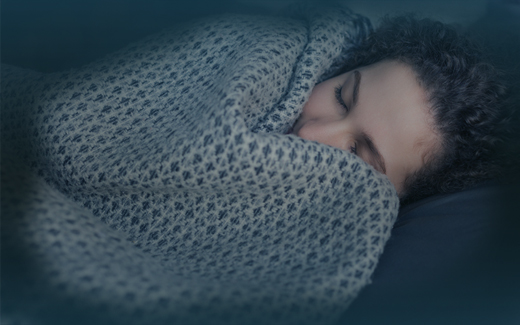Fall into Better Sleep
As you switch your wardrobe for the changing weather, Kevin Carter, DO, sleep medicine specialist, recommends adjusting your sleep schedule to accommodate the time change.
In November, we “fall back” as Daylight Savings Time comes to an end and set our clocks back an hour. Though this change is typically thought to be less detrimental to sleep, it still interrupts our circadian rhythms, or our internal clock, that follows a daily cycle of sleep and wake times.
“The best way to deal with any circadian rhythm interruption is to start moving your sleep schedule prior to the event,” Dr. Carter suggests. “For a one-hour time change, start moving your bedtime by 15 minutes each night starting four nights before. To prepare to ‘fall back’, you should begin moving your bedtime forward by 15 minutes each night starting four nights before the time change.” Easing into the change in time will feel more natural to your body than the stark change of an hour.
Effects on the body
Lack of sleep, or frequently interrupted sleep, contributes to lack of focus, increased mood disorders such as depression and anxiety, and short-term memory loss. Dr. Carter says time changes also contribute to a higher number of vehicle collisions and cardiovascular distress. Make sure you’re taking care of your body and getting adequate rest to stay safe and healthy.
Start sleeping better
If you struggle with the smaller steps toward an earlier snooze, Dr. Carter offers these tips for a healthier sleep:
- Avoid or limit caffeine, alcohol, and nicotine.
- Avoid large meals before bedtime, and don’t eat anything too spicy or fatty. If you’re accustomed to a before-bed snack, Dr. Carter suggests choosing a small carbohydrate with a bit of protein, such as a banana with peanut butter.
- Exercising during the day, at the same time every day, will help drive you into sleep faster at night.
- Dim the lights as you approach bedtime. Stay away from electronics and turn off all but the lights necessary for safety. “As we expose ourselves to light during the day, we’re suppressing melatonin, which helps signal to the circadian rhythm that it’s time to bed,” says Dr. Carter. If you’re set in your ways of watching TV before bed, Dr. Carter suggests trying to sit farther away and turning on the “night mode” setting on smartphones and computers.
By Dr. Kevin Carter
Adapted from Kettering Health Network Health Connection, Fall, 2018

